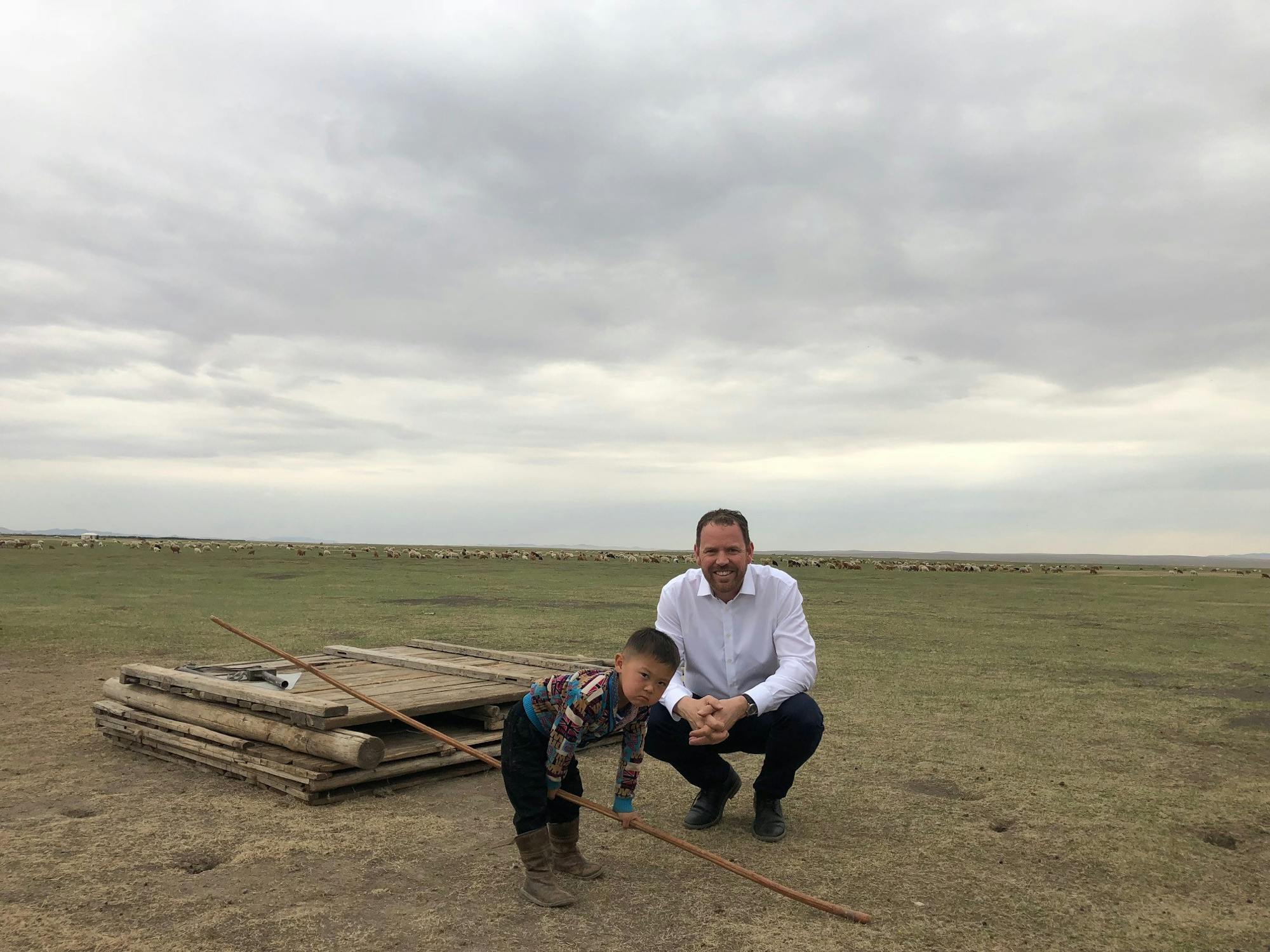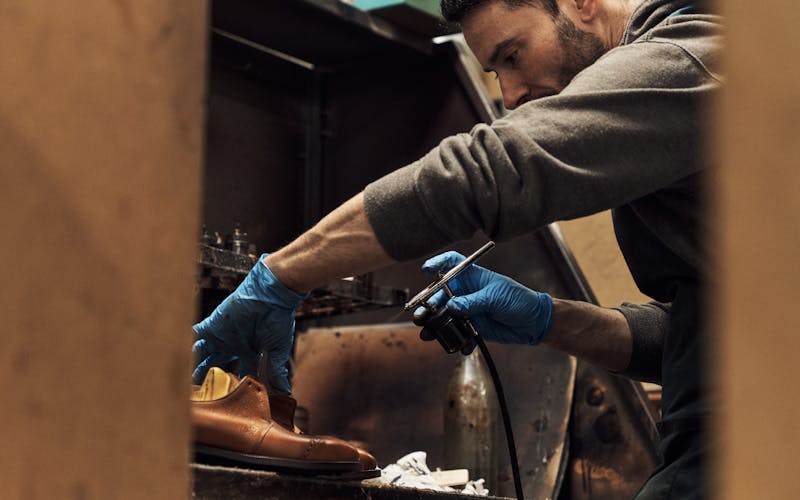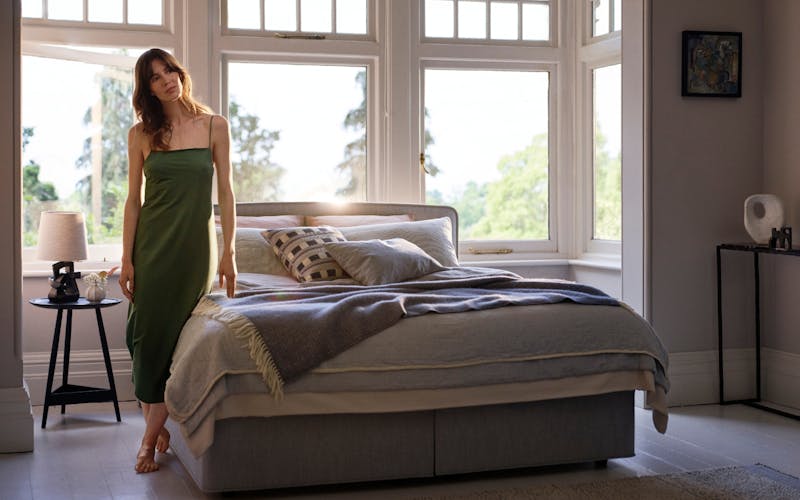

for Walpole members and
non-members available now
at The Londoner



Simon Cotton is the Chief Executive of Johnstons of Elgin, the UK’s largest employer in textile manufacturing, with just over 1,000 highly skilled employees based at its two mills in Elgin and Hawick, and with offices around the world. Johnstons is a 223-year-old company which sells under its own “slow luxury” label as well as manufacturing for most of the world’s top brands including Burberry, and is committed to doing the right thing in relation to its community and environment. Simon is on the board of the Sustainable Fibre Alliance and frequently travels to Mongolia to push forward their work on sustainability and animal welfare.
How are you navigating Johnstons of Elgin through the current COVD-19 crisis?
We closed down all of our retail operations on the 23rd of March and all of our manufacturing sites on the 26th of March. Our community is hugely important to us and we are a large employer in both Elgin and Hawick, so felt the best thing we could do at that time was to stop operations and protect the local NHS. We are currently working on safe working processes for when we do eventually re-open and for how that will happen in phases.
What has the situation taught you about leadership?
These have been the fastest changes we have ever faced but I think the decisions we've made have been the most collaborative ones we've ever done. Our whole senior team has been meeting by video conference every day and we debated and discussed every step, even when those decisions had to be made incredibly quickly. The decision to close the mills was made within an hour but every member of the senior team and many of the managers were involved. The frequent video conferences feel very effective and I believe we will maintain those going forward, even when the decisions are slightly less challenging.
And what has it taught you about your business?
Our values of community and trust have been even more evident when times are challenging. The support of our workforce, our customers and even our competitors has been so uplifting and welcome. It has really demonstrated how resilient the business is. We have always seen our strength as coming from our values and the relationships we have and they are definitely passing this critical test. We have survived world wars and floods before and it has always been with that same extended community behind us. It is good to see that those values are still very much alive in this generation.
How are you – and the wider business – supporting your people?
There are lots of different issues for the team at the moment, whether they are furloughed or are part of the skeleton staff which is still working. Some people are finding being at home difficult, some are home schooling children and others have very serious concerns for themselves or their loved ones. The first thing we have been doing is lots and lots of communication to the whole team. We are video conferencing a lot, phoning, emailing and keeping everyone aware of every step we are taking and are planning to take. We can’t always be specific about things like restart dates for obvious reasons, but we can share with people what we do know. My chairman, Jenny, has also been joining in with uplifting messages referencing our history and the personal side of what we do. We believe, more than ever, that this a time for human connections, rather than corporate messages. We have provided resilience coaching to those who want it and will be providing it to all managers so they can properly support their teams.
What do you see as the potential long-lasting changes to Johnstons as a retail business?
We are definitely seeing a very significant growth in online sales at the moment. Gifting has been very popular and home products have been very well received. We expect online sales to continue at a high level and, although they will undoubtedly reduce after lockdown, they will remain more important within our mix permanently. There are definitely new people coming to us who have never shopped with us online before and hopefully they will find that the personal service and convenience work well for them.
As a casual brand we are probably fitting the current mood reasonably well, as people want to live and work in comfort. We anticipate that the casualisation trend, which we were seeing more of anyway, has just received an additional boost and that formal workplaces will be much less formal when they reopen.
We very much hope that this time of enforced contemplation will encourage people to make more meaningful purchases. We would like to see people buying less items, but buying pieces that they will wear season after season, made with natural fibres, and made to be loved for many years.
How are you, on a personal level, dealing with lockdown?
Like most of the small team who have remained working, I am working from home. We have had three pupils from our local boarding school locked down with us, along with my wife and my own two children, three dogs and twenty five chickens. It's been a very surreal experience but great fun to have an extended family, all at home. The biggest challenge is fighting with five school pupils for the available WiFi every day!
If you are the leader of a Walpole member or partner and have the time to talk to Walpole – and the wider luxury sector – on how you are navigating your business through the current Covid-19 crisis, please contact Jenni Rayner on [email protected]; we’d love to hear from you.





